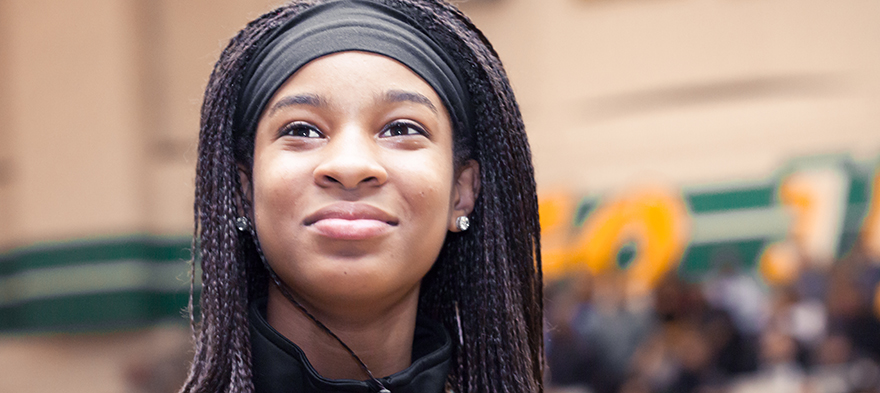
Jan 11, 2019 12:00:00 AM
Afrocentric schools have been championed by black educators who had traumatic experiences with integration as far back as the 1960s and by young black families who say they recently experienced coded racism and marginalization in integrated schools.To make it plain: If you think excellence can’t exist in all-Black spaces, you are suffering from the internalization of white supremacy—whether you’re Black or White. The only way integration has a chance of succeeding, as outlined by the group “Parenting While Black” in the NY Times article, is if “all schools are responsive to the needs of black and Hispanic students — which they say requires new curriculums, more teachers of color, and a strong emphasis on culture and identity.” As an educator, I’ve come across many folks whose parents chose for them expensive Quaker schools, private schools, and impossible-for-Black folks to get in magnet schools. As a result, they left their school experiences with a very different mindset than my classmates. These same people who benefitted from schools outside the traditional school system, believe that if you’re fighting for parents to have the dignity and right to choose a school that’s best for their children, then you’re missing the mark. [pullquote]These elitists will have you believe that while they deserved the choice their own parents could afford, others are sellouts for trying to establish choice in poor Black communities.[/pullquote] I’m not sure exactly what they believe is being sold out, but they’re fighting against the right that they enjoyed for themselves. Once I was at a lecture of a prominent Black speaker who I admire greatly. We agree on many issues (ending mass incarceration, ending oppression against immigrants, fair wages for all, etc). But he also railed against parental choice and a friend (also anti-parental choice) gleefully looked at me and said, “See. You respect him. You should listen to him.” I responded, “Ask him where his own child attends school.” What my friend didn’t know was that this Black leader’s child attended a very expensive private school. Choice. This was a few years ago, but since then, I’ve noticing a pattern in the lives of several anti-school choice advocates. They tend to have attended schools where most Black and Brown families cannot attend. They also exercise their parental right to choose their own child’s school. They either move to gentrified or suburban neighborhoods or pay for private education. They often don’t work directly with the people they claim to fight on behalf of—when Bryan Stevenson says be proximal, it falls on their deaf ears. The mis-education is rampant because they’ve ingested the idea that their own circumstances place them beyond the common experiences of other Black people. My experiences of my parents making choices about school makes me want that educational right for all parents. Others’ school experiences led them to believe it is the sole right of the few—the few who can afford to pay for it.
Sharif El-Mekki is the Founder and CEO of the Center for Black Educator Development. The Center exists to ensure there will be equity in the recruiting, training, hiring, and retention of quality educators that reflect the cultural backgrounds and share common socio-political interests of the students they serve. The Center is developing a nationally relevant model to measurably increase teacher diversity and support Black educators through four pillars: Professional learning, Pipeline, Policies and Pedagogy. So far, the Center has developed ongoing and direct professional learning and coaching opportunities for Black teachers and other educators serving students of color. The Center also carries forth the freedom or liberation school legacy by hosting a Freedom School that incorporates research-based curricula and exposes high school and college students to the teaching profession to help fuel a pipeline of Black educators. Prior to founding the Center, El-Mekki served as a nationally recognized principal and U.S. Department of Education Principal Ambassador Fellow. El-Mekki’s school, Mastery Charter Shoemaker, was recognized by President Obama and Oprah Winfrey, and was awarded the prestigious EPIC award for three consecutive years as being amongst the top three schools in the country for accelerating students’ achievement levels. The Shoemaker Campus was also recognized as one of the top ten middle school and top ten high schools in the state of Pennsylvania for accelerating the achievement levels of African-American students. Over the years, El-Mekki has served as a part of the U.S. delegation to multiple international conferences on education. He is also the founder of the Fellowship: Black Male Educators for Social Justice, an organization dedicated to recruiting, retaining, and developing Black male teachers. El-Mekki blogs on Philly's 7th Ward, is a member of the 8 Black Hands podcast, and serves on several boards and committees focused on educational and racial justice.
Few issues in education spark more tension and debate than standardized testing. Are they a tool for equity or a burden on students? A necessary check on school systems or a flawed measure of...
Charter schools are public schools with a purpose. Operating independently from traditional school districts, they're tuition-free, open to all students, and publicly funded—but with more flexibility...
Despite the benefits of a diverse teaching force, prospective teachers of color fall out of our leaky preparation pipeline at every stage: preparation, hiring, induction, and retention. Here’s what...
Ed Post is the flagship website platform of brightbeam, a 501(c3) network of education activists and influencers demanding a better education and a brighter future for every child.
© 2020-2025 brightbeam. All rights reserved.
Leave a Comment